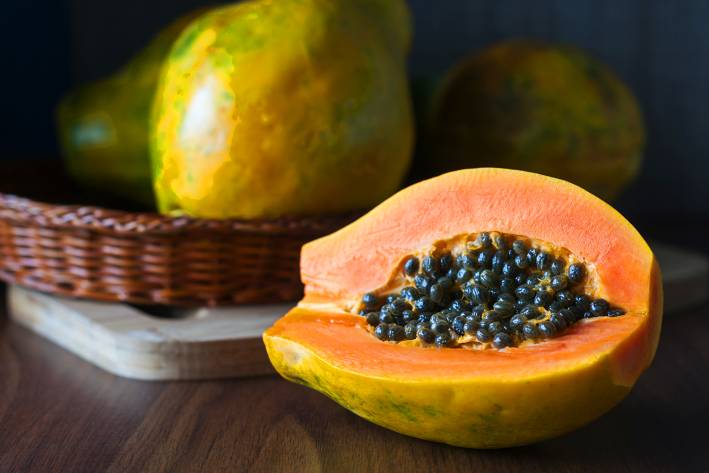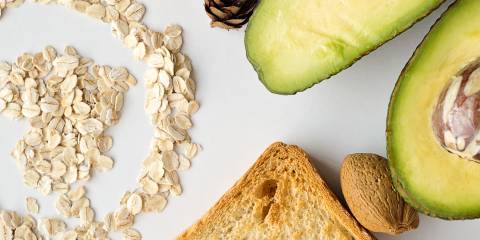Enzymes are proteins that act as catalysts that speed the completion of natural chemical processes in the body. Our bodies produce enzymes, and we also obtain them from raw foods.
After age 40, our ability to produce enzymes decreases by 20 to 30 percent. The presence of enzymes in the saliva of young adults is as much as 30 times higher than in people over age 69. Because enzymes in food are destroyed by heat, cooked and processed foods can’t help us make up the difference, and this can lead to an enzyme deficiency.
Some scientists believe that we could live longer and be healthier by preventing the loss of enzymes. This is where enzyme supplements come in.
Digestive Support
The most familiar enzymes are sold for digestive support. Historically, pancreatic enzymes from pigs and cattle have addressed pancreatic insufficiency, while plant-based enzymes such as bromelain from pineapple break down proteins.
Other widely used enzymes include papain from papaya and rutin, derived from the plant Sophora japonica. Taking plant-based enzymes 40 minutes before meals can help with heartburn, according to Jacob Teitelbaum, MD.
The common enzymes that can help digest food (and prevent heartburn) are amylase (which helps digest carbs), cellulase (which helps digest the fiber in fruits and veggies), and lipases (which help digest fattier foods).
Some research has shown that digestive enzymes help prevent undigested food particles from entering the blood-stream, and a 2005 study published in Clinical Immunology demonstrated the efficacy of bromelain as a treatment for colitis.
Enzyme Therapy
Enzyme supplements can be taken to improve other conditions, such as osteoarthritis, rheumatoid arthritis, and other inflammatory diseases, or to speed the healing of trauma injuries.
This approach, called systemic oral enzyme therapy, involves taking enteric-coated digestive enzymes between meals. The enteric coating prevents enzymes from interacting with stomach acid, so they reach the small intestine before breaking down.
The medical journal Arthritis recently reported that a randomized, double-blind, placebo-controlled trial evaluated adults with moderate to severe osteoarthritis of the knee who received an enteric-coated enzyme product, the NSAID (non-steroidal anti-inflammatory drug) diclofenac, or a placebo. The enzyme combination performed as well as diclofenac while producing fewer side effects and reducing reliance on analgesic medication. Both out-performed the placebo.
Bromelain may have anti-platelet activity so it’s not recommended for those taking blood thinners, and it’s also not recommended for children with cystic fibrosis.






